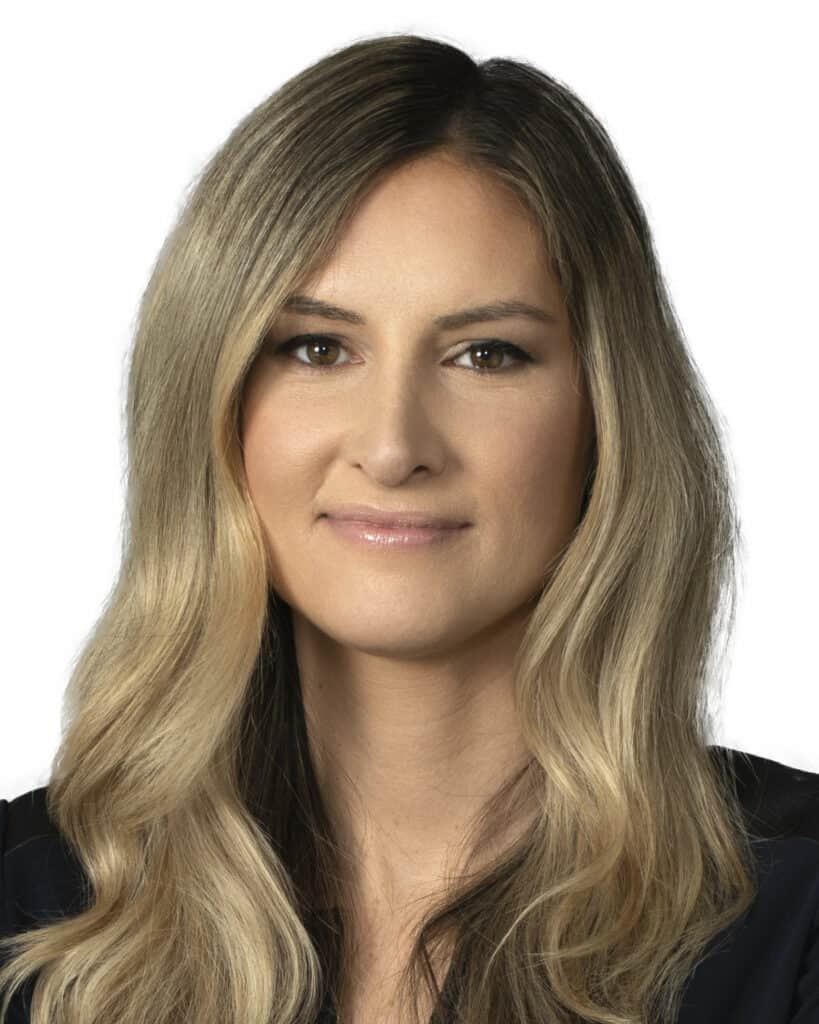
If you’re appealing a refused family sponsorship application in Canada, you must file within 30 days of receiving your refusal letter. As a Canadian citizen or permanent resident, you can challenge IRCC’s decision through either Alternative Dispute Resolution (ADR) or a formal hearing at the Immigration Appeal Division. You’ll need to gather supporting documents addressing the refusal reasons and follow strict deadlines. Understanding the appeal process and preparation requirements will greatly impact your chances of success.
Understanding Sponsorship Appeal Rights and Eligibility
When facing a sponsorship refusal in Canada, understanding your appeal rights is crucial for determining your next steps.
You’ll have 30 days from receiving your refusal letter to file an appeal with the Immigration Appeal Division (IAD). However, not all refusals qualify for appeal rights.
You can appeal if you’re a Canadian citizen or permanent resident who was denied permission to sponsor a family member. The key exception is when the sponsored person is inadmissible due to serious criminal offenses, organized crime involvement, security threats, or human rights violations.
While misrepresentation typically bars appeals, there’s an exception if you’re sponsoring a spouse, common-law partner, or child.
Your appeal will be heard publicly unless exceptional circumstances warrant confidentiality, and you may go through Alternative Dispute Resolution before a full hearing.
The Alternative Dispute Resolution (ADR) Process
The Alternative Dispute Resolution process offers a more streamlined approach to resolving sponsorship appeals without the need for a formal hearing.
During ADR, you’ll work with a Dispute Resolution Officer who facilitates discussions between you and the Minister’s counsel to find common ground and potentially reach an agreement.
- The process is typically faster and less stressful than a formal hearing
- You’ll have the opportunity to present new evidence and clarify misunderstandings
- A trained DRO guides the conversation to help both parties reach a resolution
- If successful, you’ll avoid the need for a full hearing before the Immigration Appeal Division
If an agreement can’t be reached through ADR, your case will proceed to a formal hearing where you’ll present your case before the IAD.
Key Steps in the Sponsorship Appeal Process
Successfully maneuvering a sponsorship appeal requires understanding several critical steps that must be followed precisely.
You’ll need to file your Notice of Appeal within 30 days of receiving your refusal letter from IRCC. After filing, you must gather and prepare all supporting documents, including new evidence that addresses the reasons for refusal.
If your case qualifies for Alternative Dispute Resolution, you’ll work with a Dispute Resolution Officer to potentially resolve your case without a hearing. If ADR isn’t successful, you’ll proceed to a formal hearing where you’ll present your case before the Immigration Appeal Division.
Throughout the process, you’ll need to meet strict deadlines, maintain proper documentation, and be prepared to testify if required at your hearing.
Common Reasons for Sponsorship Refusal
Understanding why sponsorship applications get refused can help you avoid common pitfalls and strengthen your appeal. Immigration officers carefully evaluate each application against strict criteria, and any shortcomings can lead to rejection.
- Inadequate proof of genuine relationship, including insufficient documentation of shared life and commitment
- Failure to meet financial requirements, such as minimum income thresholds or inability to demonstrate financial stability
- Incomplete or inaccurate application forms, missing signatures, or vital documentation
- Medical inadmissibility, criminal history, or security concerns that make the sponsored person ineligible
When a refusal occurs, it’s important to identify the specific reason cited in your refusal letter. This understanding will help determine whether to appeal the decision or address the concerns in a new application, improving your chances of success.
Preparing Your Appeal Documentation
Preparing a complete and well-organized appeal documentation package is critical to mounting a successful sponsorship appeal case.
You’ll need to gather and organize several key documents, including your Notice of Appeal form, the original refusal letter from IRCC, and all supporting evidence that addresses the specific reasons for refusal.
Make sure to include any new evidence that wasn’t available during your initial application. This might include updated relationship proof, financial documents, or character references.
You should organize these materials chronologically and create a detailed index. Every document that’s not in English or French must have a certified translation.
Keep copies of everything you submit, and consider using tabs or section dividers to help the appeal officer easily navigate through your documentation.
What to Expect at Your Appeal Hearing
A sponsorship appeal hearing at the Immigration Appeal Division follows a structured format that’s similar to a court proceeding but less formal.
You’ll find a panel member presiding over the hearing, while you or your representative presents your case. The Minister’s counsel may also be present to represent IRCC’s position.
- You’ll be sworn in and asked to testify about your sponsorship application.
- The panel member and Minister’s counsel can ask you questions about your case.
- You can present witnesses and additional evidence to support your appeal.
- If needed, interpreters are available to assist with language barriers.
After all evidence is presented and final arguments are made, the panel member will either provide an immediate verbal decision or send you a written decision later.
Timeline and Duration of Appeal Proceedings
The timeline for sponsorship appeal proceedings varies considerably based on several key factors, including case complexity, evidence requirements, and current IAD caseload.
You’ll typically need to wait 2-3 months after filing your appeal before receiving initial correspondence from the IAD about your case’s progression.
If your case qualifies for Alternative Dispute Resolution (ADR), you can expect this process to begin within 4-6 months.
For cases requiring a full hearing, the wait time usually ranges from 12-18 months from the initial appeal filing. Complex cases or those with extensive documentation may take longer.
The actual hearing usually lasts one day, and you’ll typically receive a decision within 1-3 months afterward, either verbally at the hearing or in writing.
Appeal vs. Reapplication: Making the Right Choice
When faced with a sponsorship refusal, choosing between filing an appeal or submitting a new application isn’t always straightforward. The decision depends on your specific circumstances, available evidence, and the reasons for refusal.
- Appeals allow you to challenge IRCC’s decision and present new evidence, but they’re typically longer and more complex.
- Reapplications work better when circumstances have changed considerably or you can address the original concerns.
- Appeals must be filed within 30 days of refusal, while new applications can be submitted anytime.
- Legal representation is often necessary for appeals but may not be needed for reapplications.
Consider consulting an immigration professional to evaluate your situation. They’ll help determine whether an appeal’s likelihood of success justifies the time and resources compared to starting fresh with a new application.
Legal Requirements and Restrictions in Sponsorship Appeals
Legal boundaries governing sponsorship appeals in Canada establish strict parameters that you’ll need to navigate carefully.
You must file your appeal within 30 days of receiving a refusal letter from IRCC, and you can’t appeal if the sponsored person is inadmissible due to serious criminal offenses, organized crime involvement, or security threats.
For spousal sponsorship appeals, you’ll need to provide substantial evidence proving your relationship’s authenticity, as IRCC actively screens for marriage fraud.
You’ll face a public hearing process unless exceptional circumstances warrant a confidentiality order.
It’s essential to understand that while misrepresentation typically bars appeals, exceptions exist for spouses, common-law partners, and children.
The IAD may publish your case details, and documents could be accessible to the public.
Frequently Asked Questions
Can I Work With Multiple Immigration Lawyers During My Sponsorship Appeal?
You can work with multiple immigration lawyers, but it’s not recommended. Working with one dedicated lawyer guarantees consistent strategy and prevents confusion or conflicting advice during your appeal process.
What Happens if My Sponsor Dies During the Appeal Process?
If your sponsor dies during the appeal, you’ll need to notify the Immigration Appeal Division immediately. The process may continue if you can find another eligible family member to sponsor you.
How Do Previous Failed Sponsorship Attempts Affect My Current Appeal Chances?
Previous failed sponsorships can hurt your current appeal’s credibility, but you’ll have a better chance if you can show you’ve addressed the specific reasons for past refusals and strengthened your case.
Can I Travel Internationally While My Sponsorship Appeal Is in Progress?
You can travel internationally while your appeal is in progress, but it’s wise to notify the IAD of your travel plans and guarantee you’re available for any scheduled hearings or proceedings.
Are Appeal Hearing Transcripts Available for Review Before Filing My Case?
You can request previous IAD hearing transcripts through your local IAD office, but you’ll need to pay for them. They’re considered public records unless a confidentiality order exists.
Conclusion
If you’re facing a sponsorship refusal, you’ll need to act quickly to protect your rights. Whether you choose ADR or a formal hearing, make certain you understand your eligibility and gather strong documentation within the 30-day appeal window. Consider consulting an immigration professional to evaluate whether appealing or reapplying best suits your situation. Remember, careful preparation and attention to deadlines are essential for a successful outcome.

We serve ALL of Canada. Currently have offices Western Canada — Vancouver, Calgary, Edmonton, Kamloops and Red Deer. We also have the infrastructure to work with any of our clients virtually — even from the furthest regions of the Yukon to Newfoundland.
Call (778) 331-1164 [toll free 1 (844) 715-0940] to get routed to the best office for you or contact us online to schedule an appointment.
We also have a dedicated intake form to help you get the ball rolling. Our intake team will review your specific case and advise you on the next steps to take as well as what to expect moving forward.
Our offices are generally open 8:30 a.m.—4:30 p.m., Mon—Fri.

Whitney Manfro
IMMIGRATION LAWYER
Whitney takes pride in her ability to swiftly negotiate fair outcomes, yet she understands the necessity of pursuing litigation to resolve certain disputes. To this end, she has served national corporations, start-ups, senior executives, and individual employees across a broad range of industries.



